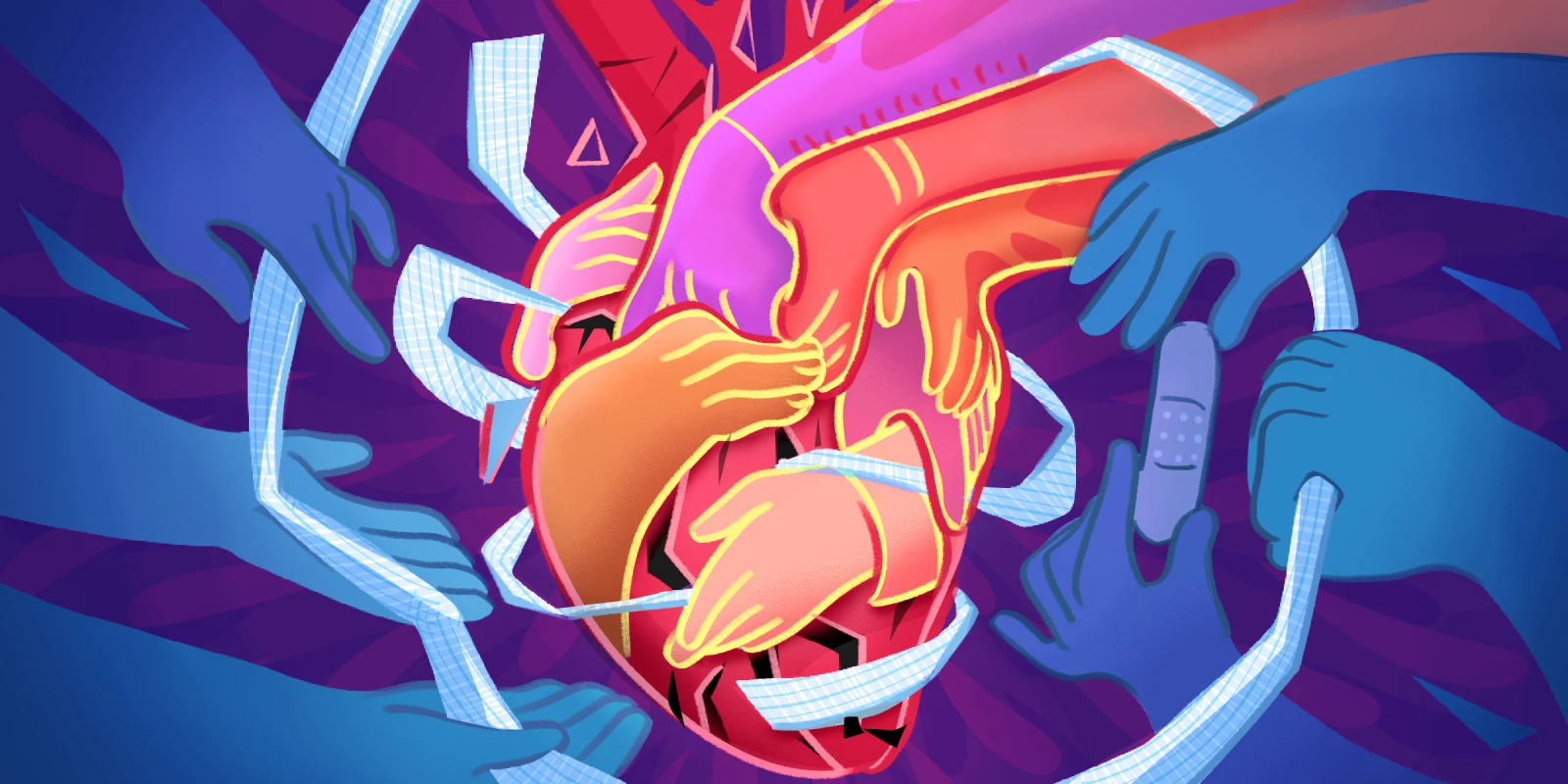Mrs. H sat next to her husband in my infectious diseases clinic as I talked to them about treatment options for an insidious infection that had taken her lungs hostage. She was a tall and frail woman, her penetrating eyes especially prominent against the backdrop of her small, pale face. She leaned her emaciated frame forward in her chair, listening intently to me. Her husband, Mr. H, peppered me with questions and jumped in to answer questions for her, which she didn’t seem to mind. We finished the encounter with plans to start therapy. Despite numerous attempts to reach her to schedule an appointment, Mrs. H remained elusive and I did not see her again until a few years later.
The next time I saw Mrs. H sitting next to her husband, she had lost a considerable amount of weight and struggled more to breathe. Mr. H continued to fill in the blanks for his wife and was now angry.
“Why did it take so long for her to get an appointment, Dr. Prakash?” he demanded. “We called four months ago and now she’s worse.” I shifted my focus from his scowl to my patient who regarded me quizzically. I apologized for the delay, which was due to transitions in our clinic early in the COVID-19 pandemic, and made the decision to start treatment immediately. However, Mrs. H did not tolerate one of the medications and was soon admitted to the hospital. I pulled myself together as I took the long walk to her room.
Mrs. H was now lying in a hospital bed and her husband was seated to her left. She had lost even more weight and was struggling to breathe. The clear, plastic oxygen tubing strapped to her nose and looped over her ears overtook her small face. She regarded me with the same intense gaze as our first encounter, her frustration palpable. Mr. H shook his head, his eyes ablaze.
“I still can’t believe it took four months to see you, Dr. Prakash,” he began. “Now, she’s gotten even worse.” He then told me he preferred to have another physician care for her. My compassion and grace began to falter and in their place, anger and resentment took center stage. What Mr. H didn’t seem to realize was that it had been two years and four months. I also sensed in his tone the assumption that none of this seemed to bother me when in fact, it did.
“This is my patient,” I finally said, enunciating each word emphatically. “I did the very best I could and will continue to do so. If she wants to choose another physician, that is up to her, Mr. H.” I turned to my patient and said, “Mrs. H, I will be back to discuss this with you.” I left in a huff, feeling wounded and defeated.
When I returned a few hours later, Mrs. H was alone and relieved to see me.
“Mrs. H, it is my honor to take care of you,” I started. “But I need to hear directly from you. It’s you and me, OK? We’re in this together.”
“I know,” she finally whispered between shallow breaths. “I want you to continue to be my doctor.”
Mrs. H now came to her appointments alone and I heard more of her voice. Her courage and sheer will to survive touched me deeply. She was truly a fighter in every sense of the term. In spite of my valiant efforts to treat her disease, she continued to deteriorate. I told her I was trying my best and each time she would reply with what little strength she had, “I know you are.”
The day finally came when Mrs. H was admitted to the hospital for the last time. I peeked through the curtain of her ICU room and gingerly knocked on the door. Mr. H was kneeling on the floor next his wife, stroking her hair and gently whispering in her ear. Her two sons were on the other side of her bed, their heads bowed.
“Just a minute!” he snapped. I waited and braced myself for a tongue lashing. When I finally entered, Mr. H exclaimed, “Dr. Prakash! It’s wonderful to see you.” I was overcome by genuine surprise at his warm welcome and overwhelming sadness at the sight of Mrs. H, now unconscious, gasping for air.
Mr. H told me this was supposed to be "their time" through his tears. I knelt next to him and held his hand as he told me about the most beautiful girl he met decades ago and how he loved her the moment he saw her. He pulled out a picture of the two of them taken during their younger years, calling my attention to the gorgeous woman in it.
“I did the best I could,” he told me. “I did the best I could to take care of her.” He paused for a minute and said, “And I know you did, too.” I fought back tears as we sat in silence.
I mustered enough strength to kneel by Mrs. H’s bedside. “Mrs. H,” I said. “I just want you to know what a privilege it was to take care of you and what an inspiration your courage is. You will remain in my heart a strong and beautiful woman.” I whispered the word “love” in her ear and kissed her forehead through my mask. I nodded to her sons who were now in tears and gave Mr. H a hug as I left the room, preparing to sob on my way home, which I did. I will never see Mr. H by his wife’s side again. I will never again lock eyes with Mrs. H, renewing our silent contract of trust and hope. But etched in my memory forever is a picture of two lovebirds locked in time and above all, my beloved patient who never lost faith in me, knowing her doctor did the best she could.
What patient lives on in your heart as someone you tried your best for? Share your story in the comments.
All names and identifying information have been modified to protect patient privacy.
Vidhya Prakash is a Professor of Clinical Internal Medicine and an Infectious Diseases physician at Southern Illinois University School of Medicine. She is founder and director of SIU Medicine’s Alliance for Women in Medicine and Science. She lives in Springfield, IL with her husband and two children.
Illustration by April Brust







